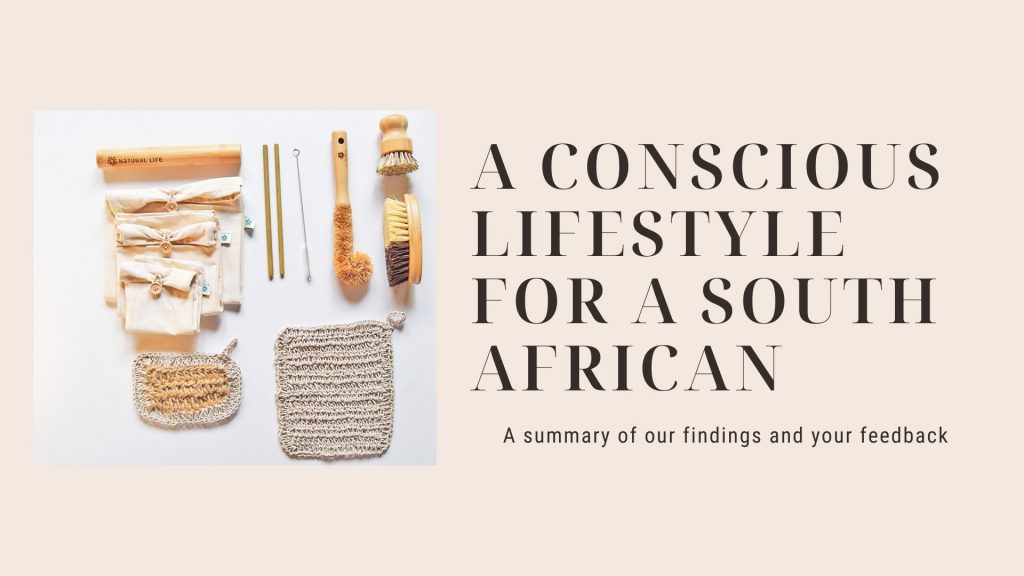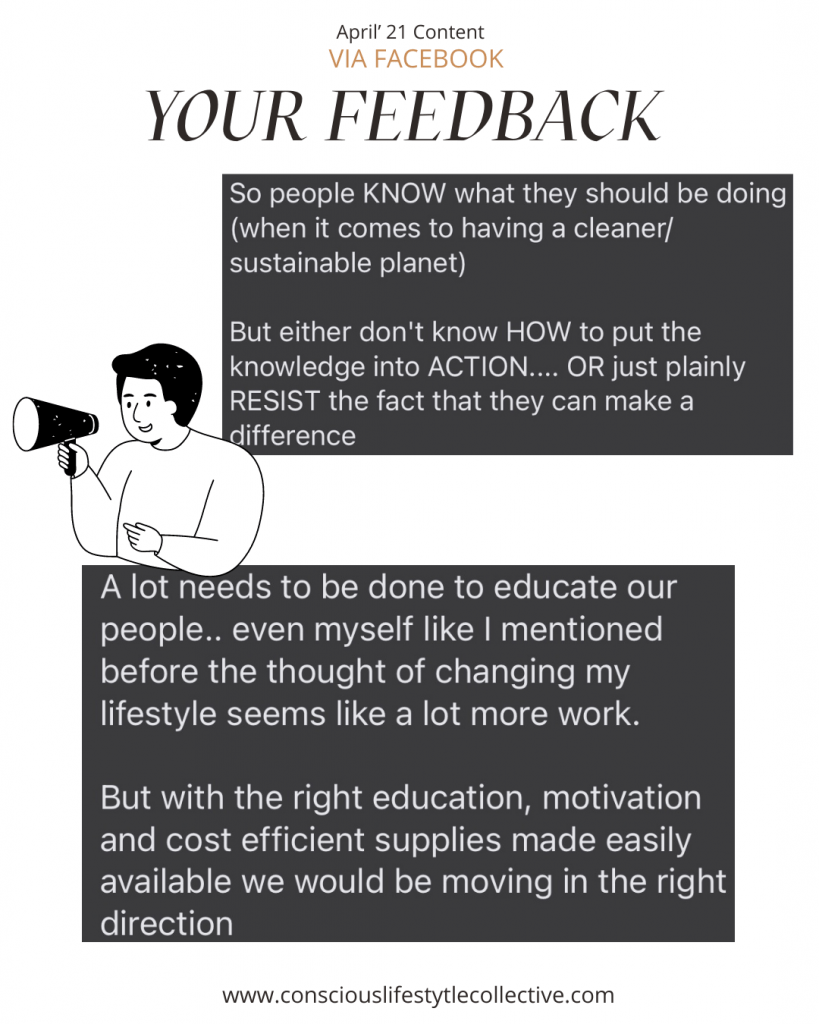
What does it mean to be an eco-friendly South African? What does a zero-waste lifestyle entail in South Africa? Is there only one way to be green in such a diverse country like ours?
Since the beginning of the year 2021, we have been creating educational content in the form of DIY tips and Did You Know quirks helping you live a more zero-waste South African and eco-conscious life. Since living a eco-conscious life is a lifetime commitment, we still encourage you to adopt and practice these tips and tricks as much as you can!
However, over the last couple of weeks, we have been asking ourselves and our community what a conscious lifestyle for South Africans, how an eco-friendly South African can be classified, and what it truly means to be an eco-friendly South African. We were met with some honest, robust, and perhaps uncomfortable responses.




The conversation about what an eco-friendly South African is or what a zero-waste South Africa looks like is an inter-sectional one. By this, we mean that eco-friendliness in South Africa is a geographic, social, political, and economic issue. Eco-friendliness in South Africa also means different things to different people depending on where they are located on these very geographic, social, political, and economic plains. The eco needs of urban spaces like suburbs are very different from the needs of township and rural spaces.
Eco-friendliness in South Africa is a geographic, social, political, and economic issue
This month of May marks an important shift in Conscious Lifestyle Collective’s outlook and work in the eco-space. The results of the work we have done so far this year have crystallised our perspective, making us zoom our focus in on what a conscious lifestyle for a South African is and what more it could be. Eco-friendliness is an issue that affects us all in South Africa, but it affects us in different ways. This extensive report on plastic by the World Wide Fund for Nature South Africa demonstrate how plastic is used and impacts communities sitting on different ends of South Africa’s geographic, social and economic plain. Being an eco-friendly South African may look like many things. This is why we have worked out that the best approach to an eco-friendly South Africa is one where we find ways of living green that are practical, inclusive, but also fitting and respectful for people’s contexts.
Being an eco-friendly South African may look like many things. This is why we have worked out that the best approach to an eco-friendly South Africa is one where we find ways of living green that are practical, inclusive, but also fitting and respectful for people’s contexts. Conscious Lifestyle Collective has chosen the focus on the following three areas to make South Africa a more eco-conscious society.
1. Education: There is not enough education about a zero-waste South Africa that all South Africans can access. Education empowers people to make more informed choices about their lives and their impact on the environment. Educating people about the eco-space and how they could be more eco-friendly South Africans is also about exposing others to how other people live and define eco-conscious behaviour.
2. Collaboration and community building: While there are people and organizations across many industries and sections of society making a concentrated effort in making South African a greener country, we have realized that many of these efforts happen in isolation. We at Conscious Lifestyle Collective believe that more cross-industry/sector collaboration may help in building stronger inter-societal ties, for the community is an essential ingredient for an eco-conscious society.
3. Access: Access is a major issue in the eco-space. From costs greener products to lack of context-specific green services (i.e. sanitation). There is also a linguistic issue where the green discourse tends to be gate kept and controlled by people or communities that facilitate resources. As a result, efforts made in townships and rural areas are not seen as green efforts, instead are seen as acts of survival.
The goal is for all for South Africans to practice being an eco-friendly in their own way. The goal is to validate and expand any and every positive way that people come to the eco table.
Shop by category
HOME DECOR
CONSCIOUS HOME HOME The most sustainable thing you can do is to use what you have! Invest in eco-friendly kitchen swaps once you’ve finished the
LIFESTYLE
Conscious lifestyle LIFESTYLE The most sustainable thing you can do is to use what you have! Invest in eco-friendly kitchen swaps once you’ve finished the
FASHION
CAREFULLY SOURCED PRE-LOVED & NEW FASHION PIECES JUST FOR YOU fashion Conscious Lifestyle Collective selection of thrift fashion items are chosen as a sustainable option
Conscious Blog Posts

A Plastic-Free Bathroom
A plastic-free bathroom for a South African.

Winter Skincare: Nourishing Your Skin Through the Chill
Our skin is an organ that requires a lot of care, care that changes over time and seasons. As the temperature drops and the air becomes drier, our skin transforms, often leaving it feeling dry, tight, and more sensitive than usual.
Why do we celebrate World Environmental and Ocean days?
Why do we celebrate World Environmental and Ocean days? Why do we celebrate World Environmental and Ocean days? World Environmental and Ocean Days are internationally

Unveiling the Beauty Revolution: Zao Makeup and the Green Glam Movement
Welcome ZAO, NATURAL, ORGANIC, VEGAN AND REFILLABLE MAKEUP INTRODUCTION In the ever-evolving world of beauty, where sustainability meets style, Zao Makeup has emerged as a

